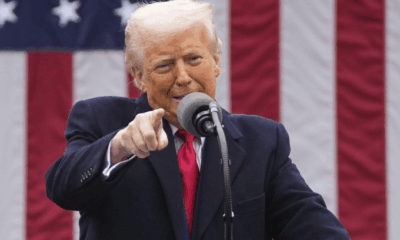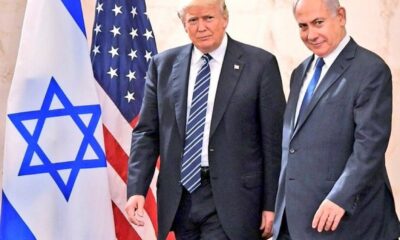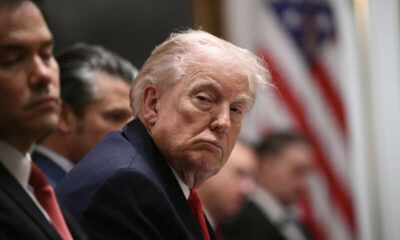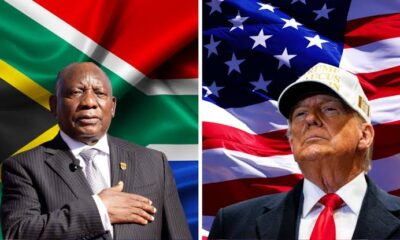News
After 12 Days of Fire and Fury, a Fragile Israel-Iran Ceasefire Hangs in the Balance
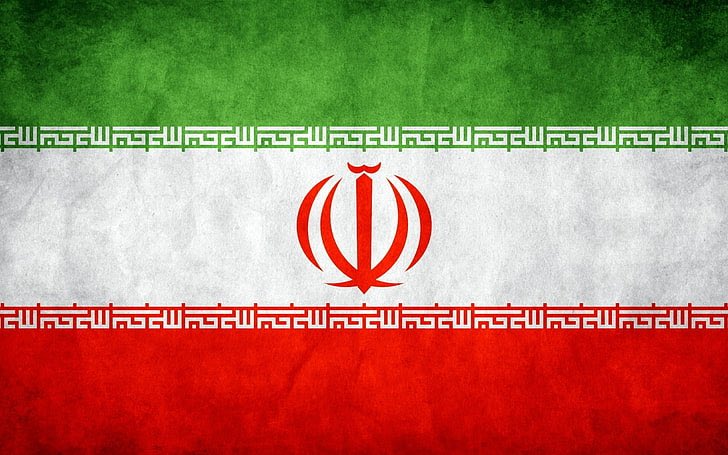
Trump calls for calm, both sides declare victory, but the region remains on edge
It took 12 days of warfare, a US president’s intervention, and countless lives disrupted, but for now, guns have gone quiet. A tense ceasefire between Israel and Iran has taken hold, with both sides eyeing one another warily across a bruised and bitter divide.
In a war that almost spiraled out of control, what started as tit-for-tat missile exchanges quickly escalated into something far more dangerous with the US itself striking Iranian nuclear sites for the first time, and Iran firing back with missiles of its own.
Pezeshkian Plays Diplomat, But Defiant
Iran’s newly elected President, Masoud Pezeshkian, found himself juggling diplomacy and national pride. Speaking with UAE President Mohammed bin Zayed, Pezeshkian stressed that Iran does not seek nuclear weapons, only its “legitimate rights” to peaceful nuclear energy.
But while Tehran talks peace, its security forces hailed a final missile barrage on Israel as the “lesson the Zionist enemy will never forget.”
This complex tone—measured abroad, militant at home, has been a recurring strategy in Iranian foreign policy. Pezeshkian’s call for negotiations stands in stark contrast to Iran’s Revolutionary Guards, who publicly celebrated their strikes even after the ceasefire clock had started.
Trump’s Unexpected Power Play
Former US President Donald Trump, who inserted himself directly into the conflict by brokering the ceasefire, lashed out at both Iran and Israel for “violating” it within hours of implementation.
But it seems his late-night diplomacy paid off—pressuring Netanyahu to pause what was said to be an imminent Israeli attack, after a phone call between the two leaders.
“The Ceasefire is in effect!” Trump tweeted from his plane en route to a NATO summit in The Hague.
Israel confirmed that it destroyed a radar installation near Tehran in retaliation for an alleged Iranian missile attack, but said it had refrained from further escalation at Trump’s urging.
Two Versions of Victory
Both Iran and Israel claimed to have “won”.
Netanyahu’s office said Operation Rising Lion had achieved all objectives, neutralizing “an immediate dual existential threat: nuclear and ballistic.” Meanwhile, Iran’s Supreme National Security Council announced that it had “compelled” Israel to back down.
But the costs are still being counted. Four Israelis were killed in Beersheba after a missile struck a residential building early Tuesday. In Iran, an Israeli strike reportedly killed nuclear scientist Mohammad Reza Seddighi Saber, who had been under US sanctions.
Global Reaction: Relief with Reservations
The ceasefire brought mixed reactions from the international community.
-
Saudi Arabia and the European Union expressed relief and called for restraint.
-
Russia cautiously hoped the truce would hold.
-
China backed Iran’s call for a “genuine ceasefire” that allows civilians to return to normal life.
But France’s Emmanuel Macron sounded a warning bell, suggesting that Iran might now enrich uranium in secret, following the US-Israeli strike on nuclear facilities.
What Happens Now?
This uneasy calm could break at any moment. With so many moving parts, the shadow of Iran’s nuclear programme, Israeli domestic politics, the role of militias like Hezbollah, and US election-year posturing, stability is far from guaranteed.
But for now, the rockets have stopped. Parents in Beersheba are burying their dead, while scientists in Isfahan count what remains of their labs. Presidents and prime ministers are issuing statements, but on the ground, civilians are just hoping the worst is over.
Whether this ceasefire marks the beginning of a new chapter—or just a pause before the next explosion, depends on what happens in the shadows of diplomacy, military strategy, and nuclear ambition.
{Source: IOL}
Follow Joburg ETC on Facebook, Twitter , TikTok and Instagram
For more News in Johannesburg, visit joburgetc.com

